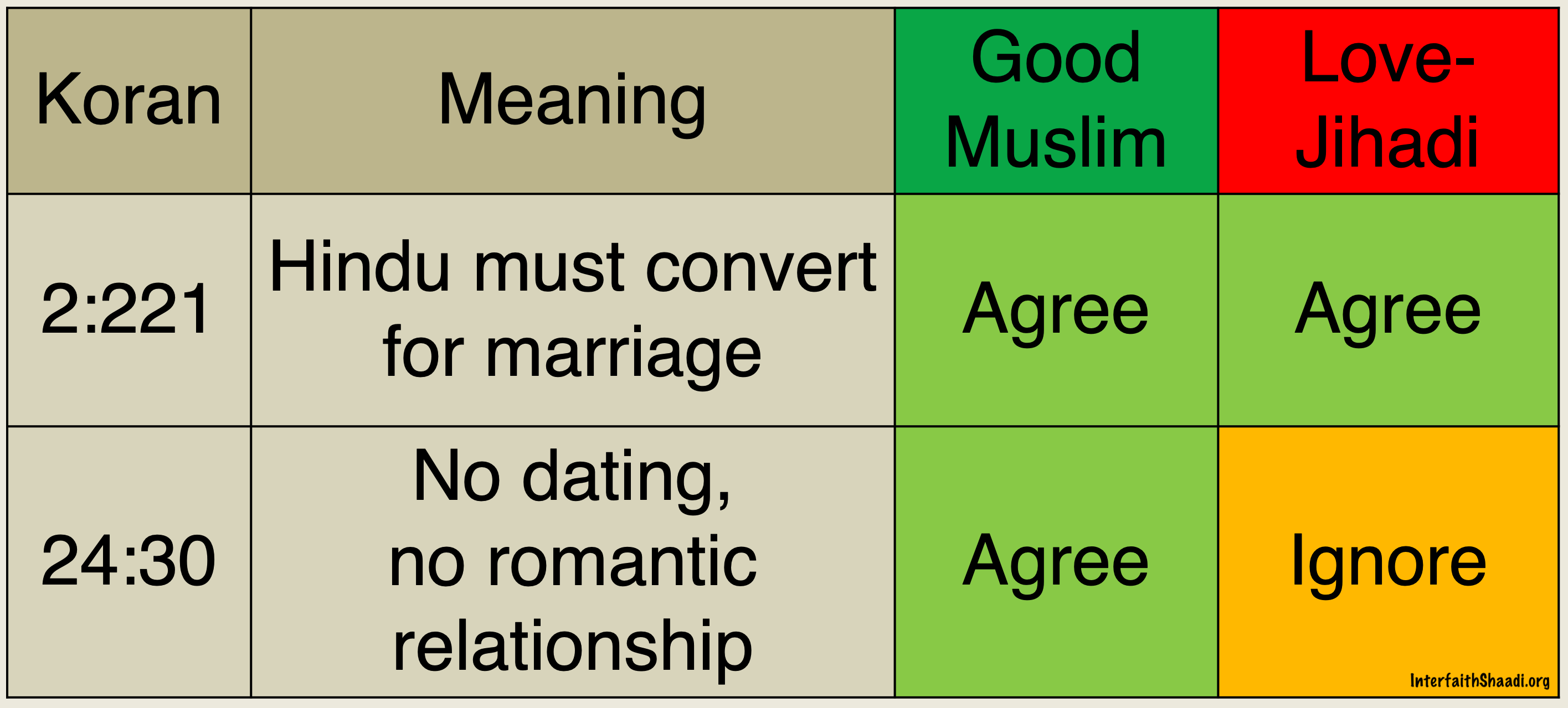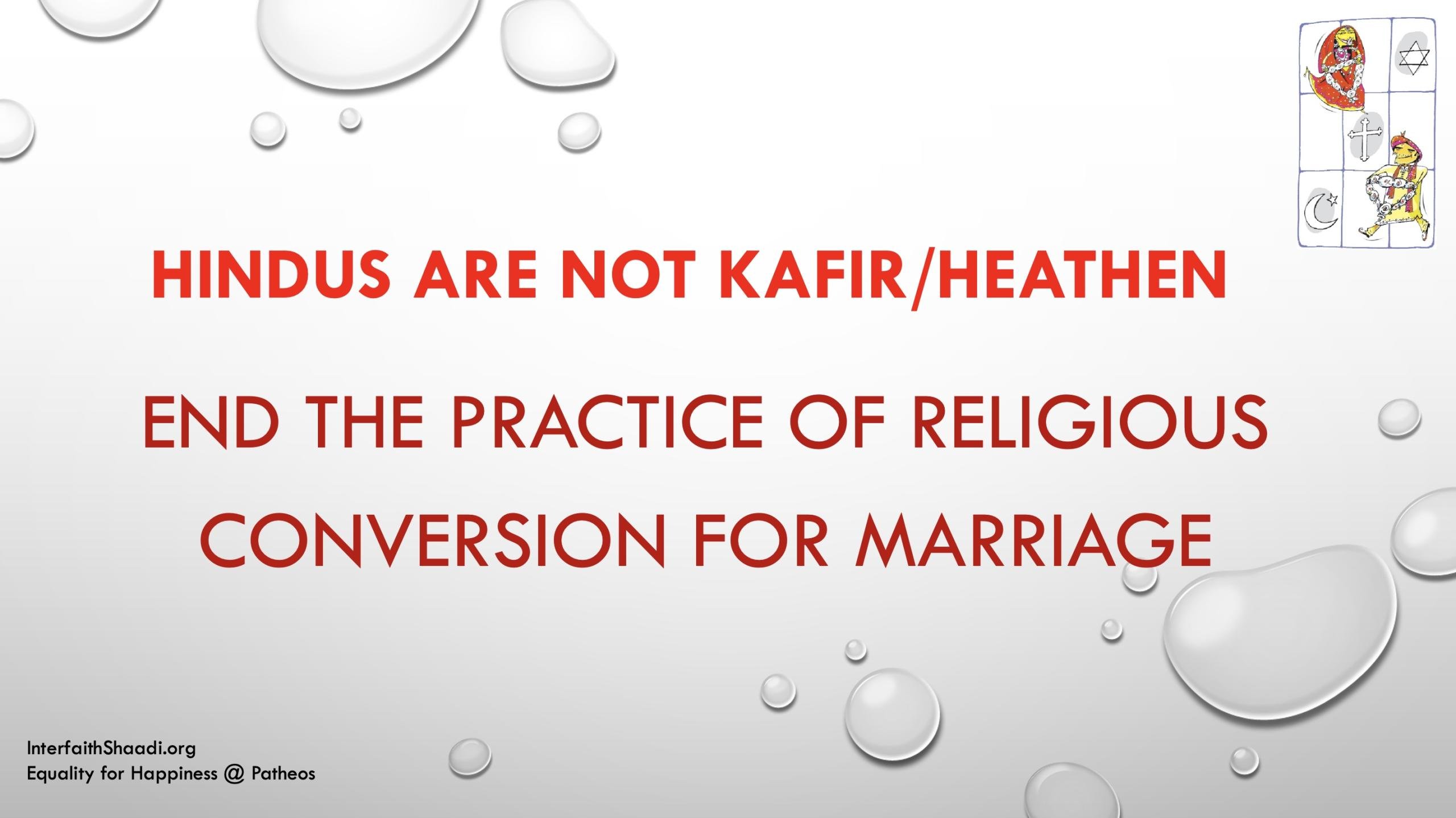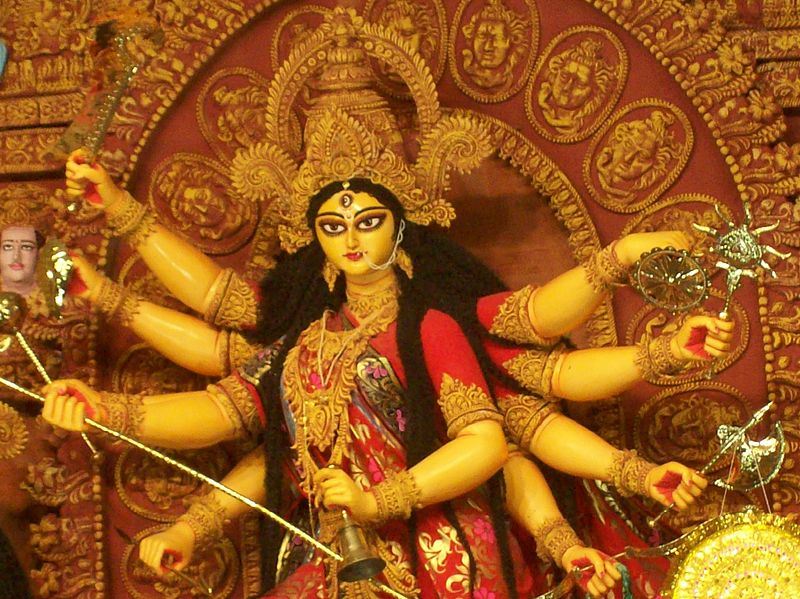OCTOBER 19, 2022 BY DR. DILIP AMIN
The oft-used term Love-Jihad is becoming a matter of acute concern to both the Hindus and the Muslims. For, it carries in its very coinage, several connotations hinting at inherent possibilities of intolerance.
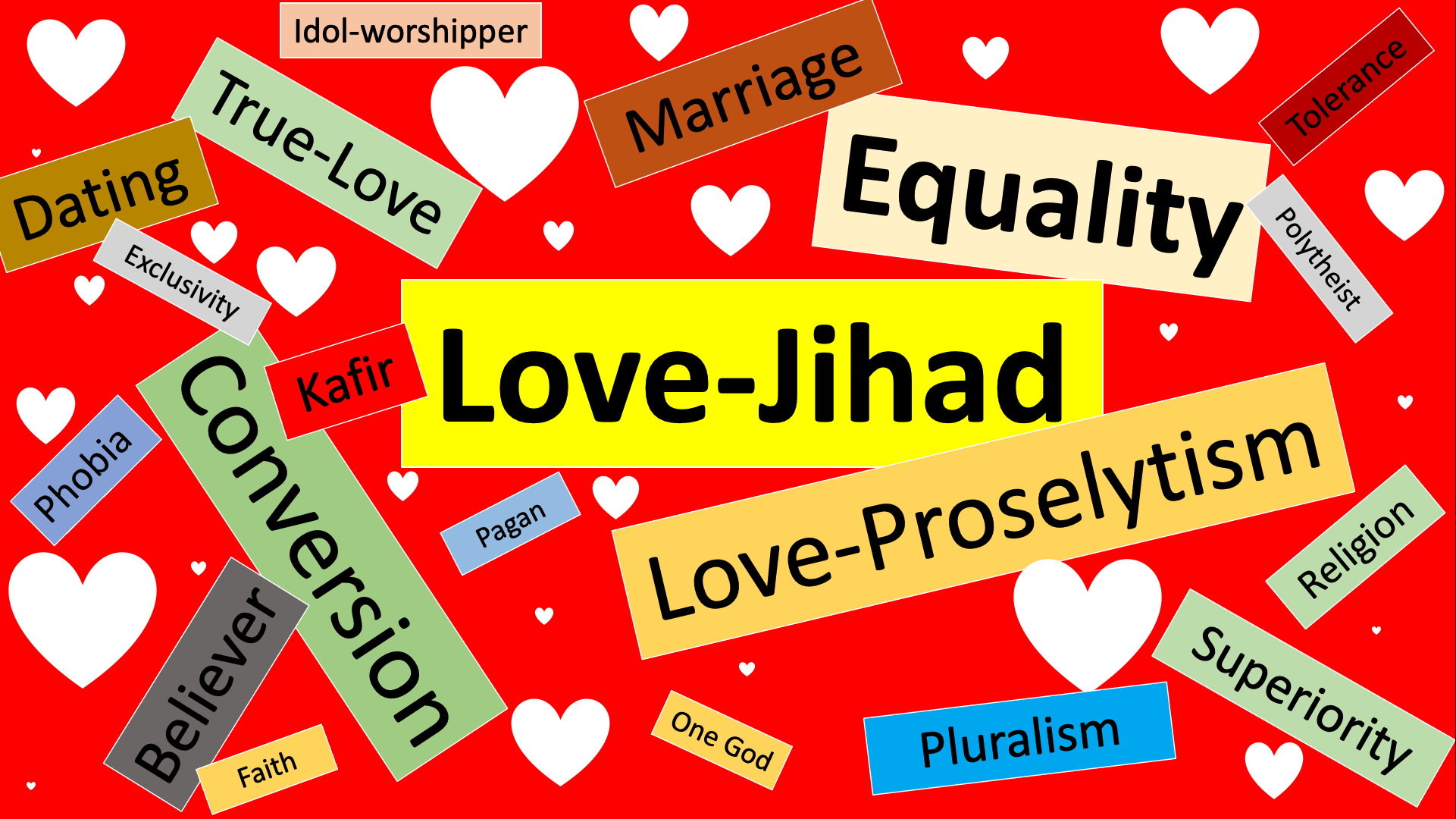
How is it that the most natural phenomenon of two individuals being in love could translate into something bigoted? Maybe we need to bridge some gaps and cross some bridges to come to a better understanding.
Many Hindus suffer from phobia when it comes to Muslim-Hindu marriages. The suspicion that the ulterior motive of a Muslim in dating a Hindu is to marry and ultimately coerce conversion on the spouse is not ill-founded. Yet, on the other hand, Muslims feel that the word “Jihad” is being wrongly used, and the term such as Love-Jihad is being promoted for political purposes and to defame Muslims.
It is time to address this topic of Love-Jihad objectively and its practical implications in real-life situations. Let us look at inferences which involve dating Hindu-Muslim couples, their wedlock and the subsequent task and its challenges of raising children in both faiths.
Why is there a need to address “Love-Jihad” here?
A leading Muslim interfaith leader wrote to the author a short email saying, “Dilip, this is the reason for your love jihad talk is problematic.”
Even though the actual context referred to in the email was not clear, the author agreed to help in order to minimize potential overuse of the term “Love-Jihad” by the Hindus. Furthermore, the author genuinely wanted to take concrete steps to minimize concerns borne by the Hindus in relationship to Hindu-Muslim love relationships and marriages by addressing some core issues.
Hindus’ core concerns for Hindu-Muslim love relationship:
Firstly, the author would like to pose the following questions to all Muslims, especially to Islamic religious and interfaith leaders:
- Are Hindus polytheistic and idol-worshipers?
- Are Hindus “believers” as described in the Koran?
- If the answer to the above question is “no”, does that mean Hindus are kafirs?
- Does the Koran (especially 2:221 and 60:11) forbid a marriage of a “Hindu” to a Muslim?
- Can a Hindu man marry a Muslim girl without the Shahadah religious conversion to Islam?
- Can a Hindu-Muslim couple raise children in TWO faiths?
Most Muslim interfaith leaders feel they are walking a tight rope when they have to discuss publicly as to how Hinduism is/has been viewed by Islam.
Fortunately, there are a few progressive pluralist Muslims, like Dr. Mike Mohamed Ghouse and Iftekhar Hai, who have publicly stated that Hindus are not kafir and believe Muslim girls can marry non-Muslim. Such pluralistic interpretations of the Koran should be very reassuring for the Hindus.
Who is a Kafir?
In Islam, a kafir is a person who is an infidel or a non-believer. It is a derogatory term, and stern punishments have been prescribed for a kafir in the Koran.
What is Jihad?
Jihad is an Islamic term referring to the religious duty of Muslims to protect the religion.
Jihad has two meanings: an inner spiritual struggle and an outer physical struggle against the enemies of Islam that may take a violent or non-violent form. Jihad is often translated as “Holy War,” although this term is controversial.
What is Love-Jihad?
Hindu perspective on Love-Jihad:
Hindus use this term to describe love-proselytism.
The term Love-Jihad is used in a situation when a Muslim falls in love with a Hindu under the guise of “true unconditional love” but later imposes Shahadah, the religious conversion of the Hindu to Islam, so that the Islamic wedding Nikah can take place. If this goal is not achieved, the Muslim will walk away cold heartedly from the relationship (read Myra Farooqi, Aditi and many from 800 other cases).
Islamic perspective on Love-Jihad:
Several Muslims find this term Love-Jihad very derogatory and believe this term is misused by politicians to defame Islam.
Muslims want Hindus to stop using the term Love-Jihad. However, it is not clear if the Muslim faith leaders are willing to speak out against the core issue—expectation of religious conversion of a Hindu before the Nikah.
Hindus’ views on interfaith marriages:
The author conducted a recent survey asking about a thousand Hindus around the globe to rate their concern over having their daughter marry into a family with a different faith background: 1) a different sect of Hindu, 2) other dharmic (like Sikh, Jain or Buddhist), 3) Muslim, 4) Christian or 5) Jew. Almost all Hindus expressed concern about their daughter marrying a Muslim.
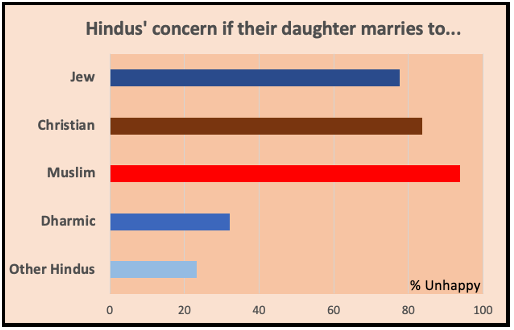
Now let’s take a deep dive into Hindu’s potential concerns relating to Hindu-Muslim marriages.
What Koran says for Interfaith Marriages?
- Koran 2:221: You shall not wed pagan women unless they embrace the faith. A believing slave-girl is better than an idolatress, though she may please you
- Koran 60:11: Do not maintain your marriage with unbelieving women (no zina)
The above verse from the Koran accentuates the confusion: Do Hindus fall in the category of “believers” or “non-believers”? Certainly, those exclusivist supremacist Muslims who interpret Hindus as kafirs and/or pagans will want Hindus to convert before the Islamic Nikah wedding.
Alternatively, those who believe 1.2 billion Hindus are also equal citizens of Allah’s kingdom will not have any problem blessing the “Hindu”-Muslim couple.
Koran on Dating:
The author does not have problems if a Muslim youth (or family or the community) believes in the exclusivist interpretation of the Koran and thus wants to interpret Hindus as Kafirs as long as such a Koran-believing person does not fall in a romantic love relationship with a Hindu (actually with any one). As per the Koran:
- Koran 24:30: Lower your gaze. (view Islamic scholar Dr. Zakir Naik) Enjoin believing men to turn their eyes away from temptation and to restrain their carnal desires
- Koran 24:31: Enjoin believing women to turn their eyes away from temptation and to preserve their chastity; not to display their adornments; to draw their veils over their bosoms and not display their finery except to their husbands, their fathers, …
Pick and choose from the Koran is a concern:
Selective believing in the Koran 2:221 (interpreted as–a Hindu must convert for marriage with a Muslim) but ignoring Koran 24:30 (okay to get into a romantic relationship under the guise of true love) is a matter of concern (read Myra Farooqi).
To ask for religious conversion after years of romantic relationship is an ugly form of love proselytism and should be condemned.
There is no term that can describe the permanent scars left on the life of the love victims.
Is it just PHOBIA or a valid concern?
Is this just a phobia (defined as an irrational fear) or a genuine concern (based on truth) carried by Hindus relating to Hindu-Muslim marriages?
The author has guided some 800 youths in love relationship involving a Muslim and found that in most cases (90+%?) that the Muslim will want the Hindu to convert to Islam for Nikah or want the children be raised only in Islam. In the author’s hands at InterfaithShaadi, in 90+% cases there was an expectation of conversion and thus it is a valid concern by Hindus and in minority cases a phobia (no conversion was expected: Shamim, Salman, Seema Maheshwari, I did not convert).
The author has seen from his childhood in India that when Hindu parents learn of their daughter’s relationship with a Muslim, they faint. This is because they know marriage to a Muslim means change of religion, name, cultural and food habits for their daughter. Basically the Hindu identity will be totally erased. Note these expectations are not imposed by terrorists but those are wishes of common Muslims. Lately, some improvement to this practice is being observed, at least in celebrity circles.
Except Dr. Ghouse , Imam Iftekhar Hai and the Ismaili communities, the author has not found any Imam willing to conduct Hindu-Muslim marriages (read Sunni Muslim’s position).
The author’s survey found 45% of Muslims marry outside their faith in the USA. It is not clear how many of these Muslims are true pluralists and are ready to raise children in both faiths.
Hindu-Muslim marriages in Muslim majority nations:
Most Muslim majority nations will not approve a Hindu-Muslim marriage and even have laws against it. Thus, in this case, Hindus don’t have phobia but carry a valid concern.
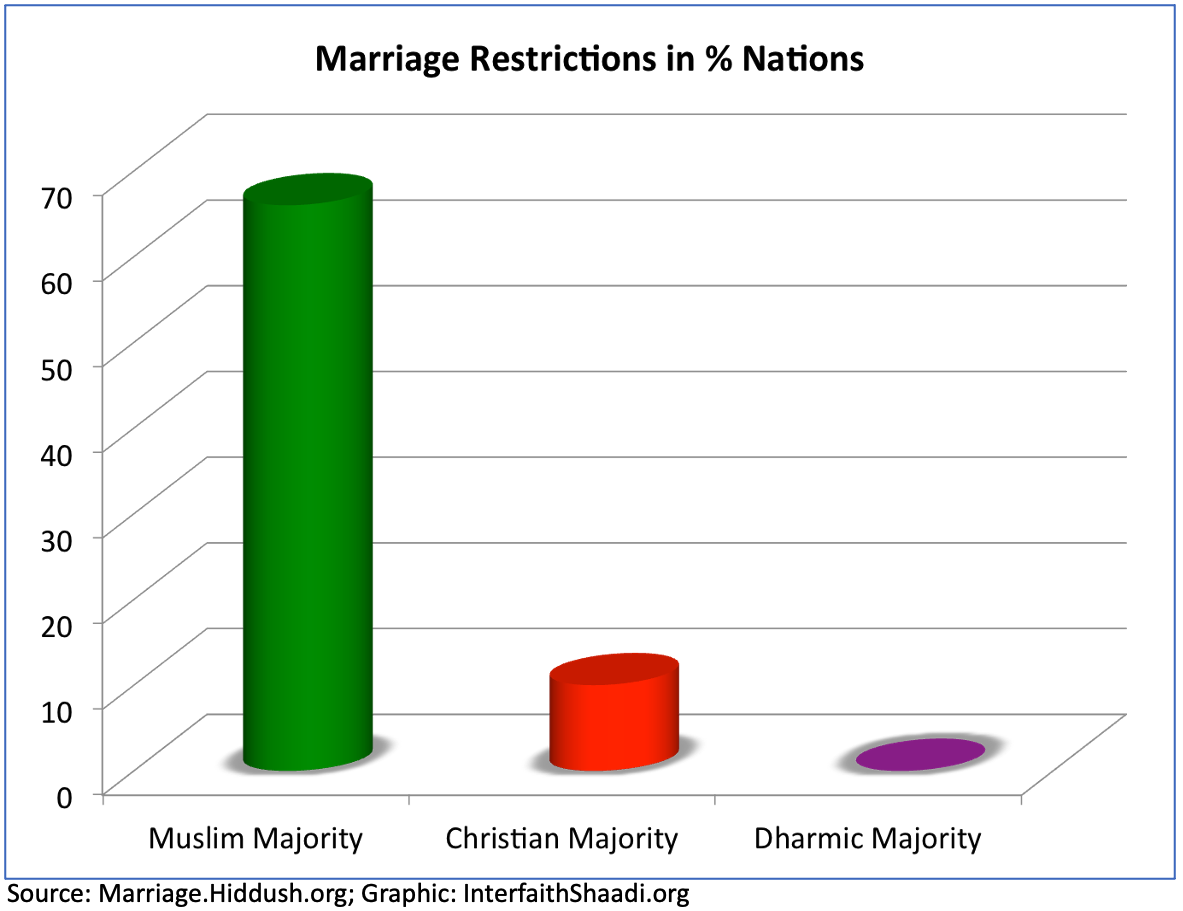
A Pakistani friend told the author that you will not find a single “Hindu”-Muslim couple in the whole of Bangladesh and Pakistan (out of 400 million total population). And even if one such interfaith couple were to be found in these countries, they would be hounded and killed. If this is true, then again, it is not Hindus’ “phobia” but a valid reason to warn their young ones against falling in love with a Muslim.
Compared to the distressing situation in the neighbouring Afghanistan, Pakistan and Bangladesh, one can find thousands of Hindu-Muslim couples living a dignified and harmonious life in India. This empirical actuality simply goes on to illustrate the presence or absence of tolerance and pluralism in these neighbouring countries, as influenced by respective majority religion in it.
How to reduce Hindu’s phobia relating to Hindu-Muslim marriages?
It is high time that the core issues regarding such phobia (or valid concerns) in relationship to Hindu-Muslim marriages be addressed.
The author is of the opinion that it is upto the respected faith leaders to try alleviate this innate phobia (or a valid concern) by making a public statement that Hindus are not kafirs and will be treated with equality in marriage with a Muslim. Such a public statement is bound to bolster the confidence of the Hindu partner vis-a-vis being able to practice his/her own religion even after entering the wedlock.
After this major hurdle is crossed and Hindus are allowed to adhere to their religious identity, needless to say, Hindus will not have any reason left to use the term Love-Jihad, or be fearful of what it has come to represent.
Right and wrong use of the term Love-Jihad:
It is of utmost concern to Muslims all over the world that the term Love-Jihad is being used not only to defame Islam, but, more importantly, as a political tool.
It is possible that an honest Muslim (even a former Muslim now claiming to be an atheist) who married a Hindu without asking for conversion, misogynistic people may automatically label him/her as a Love-Jihadi (examples: Shah Rukh Khan, Saif Ali Khan, Seema Maheshwari, Shamim, Salman, and more).
In some cases, a Hindu woman may find the term Love-Jihad offensive when used for her beloved Muslim husband. In spite of her making a fully-informed decision, some assume that a woman is naturally vulnerable and incapable of thinking independently. Society needs to trust the mental and emotional competence of women, especially those who make the decision at a mature age.
The author feels the use of term Love-Jihad is still appropriate where the expectation of religious conversion was disclosed only after years into romantic relationship.
Falling in love first and then using the dating time to love-proselytize is wrong. Any expectation of religious conversion should be pre-disclosed before dating. (read what if the Muslim youth did not know this earlier? )
How Hindu parents should prepare their child against a Love-Jihadi?
Hindu parents should educate their children to:
- Adamantly decline religious (fake)conversion for any interfaith marriage, and
- Insist that children be raised in both faiths.
Ideally, these points should be clarified before falling in love. Furthermore, before it’s too late, go ahead and get enough buy-ins from both sets of parents.
Moving forward:
To conclude, humanity and true love should be the primary criteria for dating and marriage, not the hidden agenda of religious conversion of the intended spouse.
It is time for the Muslims to consider the Hindus as “believers” and end the practice of religious conversion of kafir-Hindus for Nikah. In return, Hindus should stop using the term Love-Jihad since it carries derogatory implications.
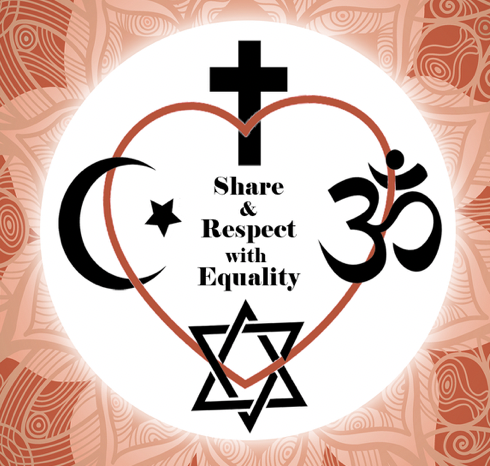
Recommendations:
- It is time for Muslims to be progressive and accept the Hindus as equal citizens of this world, especially in marriage and in raising children.
- Progressive Muslim parents and leaders should speak out against the old practice of expectation of religious conversion for marriage to minimize Islamophobia.
- In return, Hindus should stop using the derogatory term Love-Jihad and stop defaming Muslims.
@@@
Your views: We wish to know your views if the practice of religious conversion for marriage should end now or continue for ever. Please share your views below (go all the way below).
Disclaimer: All statements in this article are in relationship to Hindu-Muslim dating leading to marriage only.



- FAMILY RSS
- TAGGED WITH:
- MUSLIM
- INTERFAITH
- …MORE
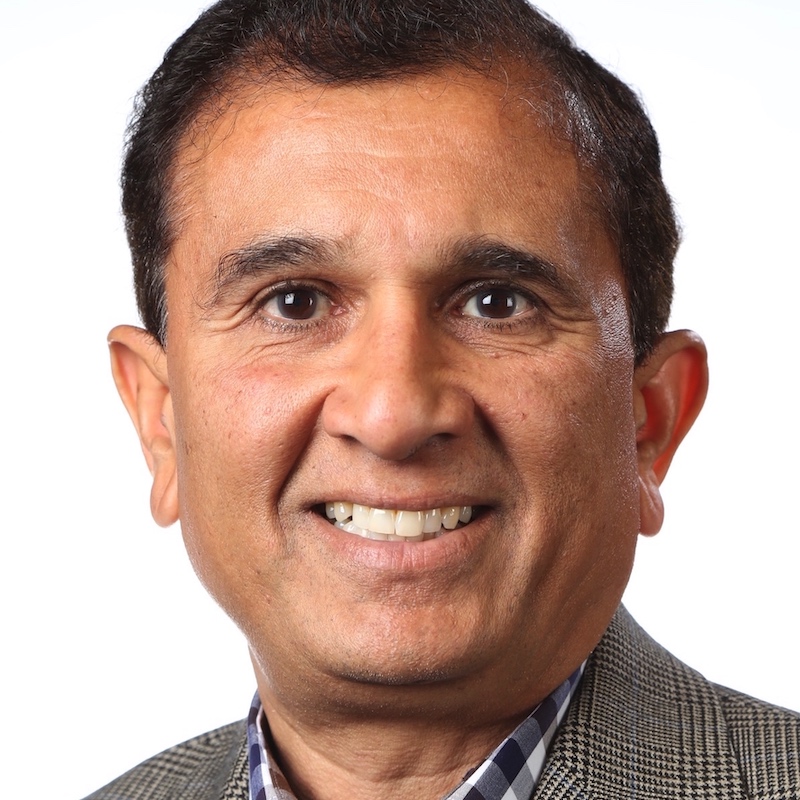
ABOUT DR. DILIP AMINDr. Dilip Amin is a Director of the Peninsula Multifaith Coalition of the San Francisco Bay area and a certified speaker at Islamic Networks Group. He is a Dharma Ambassador and on the Advisory Committee at the Hindu American Foundation. He is a jail chaplain. Dr. Amin has co-authored the book Hindu Vivaha Samskara. He founded the web forum InterfaithShaadi.org and guided 1200 youths and summarized his experiences in the book–Interfaith Marriage: Share & Respect with Equality. He is also the founder of HinduSpeakers.org. Book: https://www.amazon.com/Interfaith-Marriage-Share-Respect-Equality/dp/1988207207 You can read more about the author here.
